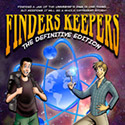A while back I was talking with someone who said that he couldn’t categorize his friends, meaning, he didn’t distinguish between his "best friend" and then down the line. To him, he’s got four or five friends–most of whom he’s known for at least 15 years–and who are all kind of his "best friend." He considers them on equal grounds. Of course, he relates to each friend differently, but he says that, in his mind, they are all equally good friends to him.
"You can’A while back I was talking with someone who said that he couldn’t categorize his friends, meaning, he didn’t distinguish between his "best friend" and then down the line. To him, he’s got four or five friends–most of whom he’s known for at least 15 years–and who are all kind of his "best friend." He considers them on equal grounds. Of course, he relates to each friend differently, but he says that, in his mind, they are all equally good friends to him.
"You can’t rate your friends," he said.
And that got me thinking. Can you categorize your friends? And if you can, should you?
My short answer is: yes and yes.
While I certainly appreciate the difficulty and nuance in categorizing friendships, we all do it, whether we are conscious of it or not. Some of us have a "best friend." That person is our go-to person almost regardless of circumstance, and there’s little doubt about who that person is for us. Meanwhile, some of us don’t have a "best friend" but a handful of close friends, who are all best friends of sorts, but without one sticking out above the others.
But whether or not we put our friends into boxes, or categorize them officially, we actually do it in our minds, even if there’s no formal planning of it. For example:
There are some people, or perhaps a single person, who we confide in with our deepest, most personal thoughts and feelings; our dreams and wishes; our fears. And maybe we tell one particular person these things, or we confide different things to different friends. But even though we might not sit down with a pen and paper and make the lists of who we would tell what, we still do it. We feel that tug in ourselves about who we want to share something with.
When we want to tell somebody something exciting, who’s the first person you think of? Same thing with when we struggle. We come up with a name, or names. But how did we do that? How do we decide?
Some friends are friends. True companions. Some friends are buddies. The ones you grab a beer with or go to the movies or have lunch. Some are people you’re friendly with, maybe a work friend or someone you see in a group. We all have our "A" friends and "B" friends and "C" friends, and down the line.
So even if we don’t formally put them in categories, we actually do it anyway. Somewhere deep in our subconscious, we make those determinations of who’s most trustworthy, or who’s most likely to be the kind of friend you need when you most need it. And also who is most likely to let you down, and so maybe we resist including that person.
Do you have that one person, that one friend, you tell everything? Do you have a few friends who are close in stature in your mind, but you share different elements of your life with each? Do you have some combination?
As time goes on we accept new friends into our lives, and they organically integrate into some level of confidence with us, as we do with them. Just as our existing friends move up and down in stature for us, given where we are in our respective paths. Sometimes we’re closer with a particular friend; sometimes not so much. Sometimes we find our way back to friends we’ve drifted from; sometimes we don’t.
Relationships are not permanent. We may want them to be–and they may turn out to be–but we flow in out of one another’s circle in different phases and with not nearly as much predictability as we would like. Relationships–and their stature–can change for us in an instant. A single word, a single deed, can split us apart–or bring us together. Plus, we all change. We grow. Some of us more than others, but we do not remain as we were. Our values shift. Our patience for wasted time lessens. We realize more and more that our time on this Earth is limited, and we try to make the most of it while we’ve got it, and so we look to spend that time with the people we appreciate–and who appreciate us–the most.
Where we fit in regard to our friends–and them with us–constantly changes. Sometimes those changes are big, but mostly they’re subtle, filled with lots of little moments that add up to something big.
So, going back to the original question:
Can you categorize your friends? And if you can, should you?





